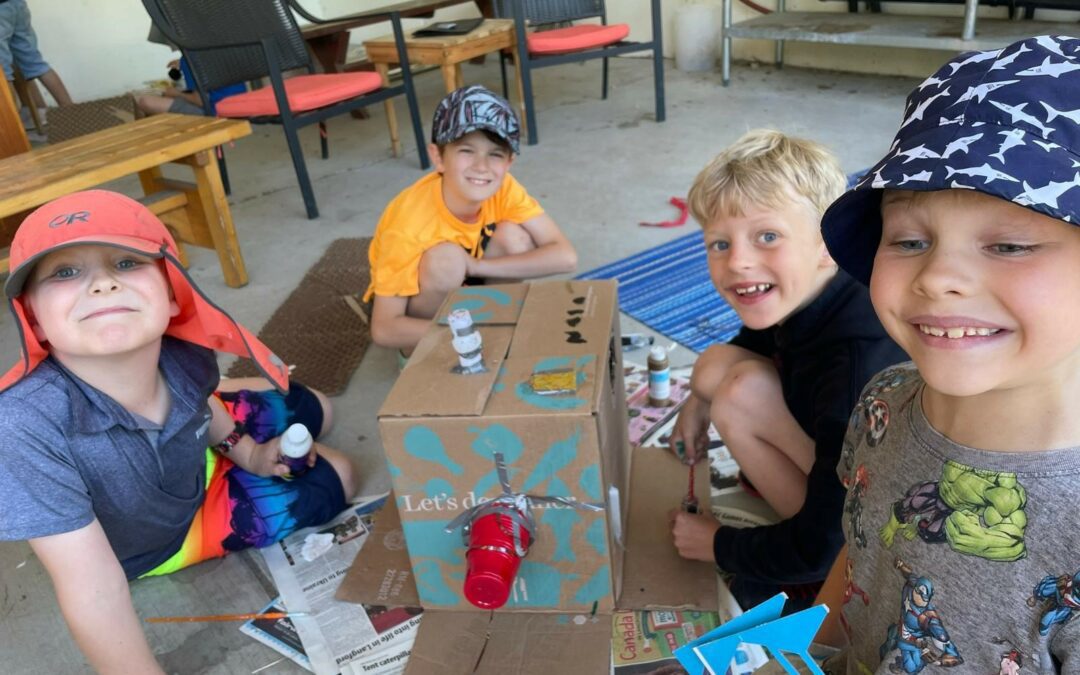Montessori vs Traditional Education
A Victoria Parent’s Complete Comparison Guide
Research backed comparison of montessori & traditional education
Traditional or Montessori? We break down everything Victoria parents need to know to make the right educational choice.
Standing at the crossroads of your child’s educational journey, you’re weighing a decision that feels monumentally important. Should you choose the familiar path of traditional education, or does Montessori’s child-centered approach offer something fundamentally better for your child’s development?
If you’re like most Victoria parents, you’ve probably heard conflicting opinions. Some dismiss Montessori as “all play, no real learning,” while others swear it’s the secret to raising confident, capable children. Meanwhile, you’re wondering: Does Montessori actually prepare children for the real world? Will they be ready for university? Are they learning the BC curriculum?
The truth is, these concerns deserve evidence-based answers, not opinions. After more than a century of implementation and decades of rigorous research, we now have substantial data comparing Montessori and traditional educational outcomes. What the research reveals might surprise you.
Teaching Philosophy: Student-Centered vs Teacher-Directed Learning
The fundamental difference between Montessori and traditional education lies in who drives the learning process and how children experience their days.
Traditional Classroom Reality: At 9:15 AM sharp, all Grade 2 students in classroom A open their math workbooks to page 47. They complete identical addition problems while the teacher monitors from the front. Students raise hands to ask permission to use the washroom. Those who finish early wait quietly until everyone completes the assignment. Success is measured by matching the answer key.
Montessori Classroom Experience:
During the same morning, one child explores fraction concepts using concrete materials, another practices multiplication with golden beads, while a third child works on a geometry extension because yesterday’s lesson sparked deeper curiosity. A 6-year-old helps a 4-year-old with counting, reinforcing both children’s learning. The teacher moves quietly among children, offering individual lessons when a child demonstrates readiness for new concepts.
Michelle McClure witnesses this philosophy in action at Westmont: “My children learn complex mathematics in a tangible way at first, then learn the language and equations later, enabling them to truly understand concepts, instead of just memorizing and regurgitating facts.” Her Grade 2 child’s solar system project impressed her astrophysicist father-in-law, who noted, “he didn’t learn those things until 2nd-year university.”
Research published in Frontiers in Psychology supports these observations: “Montessori education aligns with principles and practices that a century of research has shown are more optimal for child development than the principles and practices that undergird conventional schooling” (Lillard, 2017).
The student-centered approach addresses a fundamental challenge in traditional education: passive learning. When children constantly receive direction about what to do, when to do it, and how to do it, they develop dependency on external validation. Montessori children, by contrast, develop internal motivation and self-regulation skills that serve them throughout their lives.
Academic Outcomes: What the Research Shows
Perhaps the most persistent misconception about Montessori education is that children “just play” instead of learning rigorous academics. Current research thoroughly debunks this myth.
Mathematics and Science Excellence
According to the American Montessori Society’s research summary, “Randomized control design studies have found superior outcomes on academic and pre-academic assessments for children who attended Montessori preschool and elementary schools compared to non-Montessori control group children (Lillard, et al, 2017; Lillard & Else-Quest, 2006).” The hands-on materials that critics dismiss as “playing” actually provide concrete foundations for abstract mathematical concepts.
Ms. McClure describes witnessing this approach: “My eldest loves that he gets to choose which work he completes in a day, mostly leaning towards math… The students take accountability for their learning from an early age.” Her children demonstrate advanced understanding because they’ve built mathematical concepts from the ground up rather than memorizing procedures.
Provincial Curriculum Mastery
Addressing concerns about BC curriculum alignment, Westmont Montessori School has earned recognition from BC’s Ministry of Education for demonstrating the “best implementation of BC’s new curriculum.” This isn’t achieved by abandoning Montessori principles; rather, the method’s emphasis on deep understanding and interconnected learning naturally aligns with current educational standards.
STEM Integration, Not Arts-Only Focus
Another misconception positions Montessori as “artsy” rather than STEM-focused. In reality, Maria Montessori was herself a scientist, and her method emphasizes scientific thinking, mathematical reasoning, and systematic observation. Westmont’s innovative High School program includes a dedicated Exploration Lab equipped with 3D printers, laser cutters, CNC routers, and cutting-edge technology that enables students to prototype and create.
Executive Function Development
Beyond subject-matter knowledge, Montessori education develops crucial cognitive skills. The American Montessori Society reports that “randomized control design studies also found stronger executive functioning results when comparing Montessori private preschoolers to non-Montessori children (Lillard & Else-Quest, 2006; Lillard, et al, 2017).” Executive functioning includes working memory, flexible thinking, and self-control: precisely the skills that predict success in higher education and careers.
Preparing for High School and Beyond: Long-Term Success
The ultimate test of any educational approach is how well it prepares students for future success. Here, Montessori’s advantages become even more pronounced in adolescence and beyond.
University Readiness
Research tracking Montessori graduates shows positive long-term outcomes. According to a systematic review published in Nature, while methodological challenges exist in educational research, available studies suggest Montessori students develop strong foundational skills. Additionally, research published in PMC (PubMed Central) indicates that “early research provides evidence that the Montessori method and environment are beneficial to low- and middle-SES children.”
Ms. McClure expresses confidence in this preparation: “I absolutely believe that the children will be very well prepared for post-secondary education. More importantly, I believe these children are learning life skills and coping mechanisms to support them in all areas regardless of what path they take.”
Revolutionary High School Approach
While most Montessori schools end at Grade 8, forcing families to transition to traditional high schools, Westmont has revolutionized secondary education entirely. Their High School program maintains Montessori principles while addressing adolescents’ developmental needs through project-based learning, professional mentorships, and real-world applications.
Grade 11 students complete four self-designed projects annually, while Grade 12 students focus on a single year-long capstone project. This approach develops exactly the skills universities and employers value most: independent research, collaborative problem-solving, and the ability to synthesize knowledge across disciplines.
Career Preparation for an Uncertain Future
Traditional education prepares students for a world that may no longer exist by the time they graduate. Montessori education’s emphasis on adaptability, creativity, and self-direction prepares students for careers that don’t yet exist.
As Ms. McClure observes about her children’s play: “They play ‘school’ and one is the teacher, the other is the student… they use such kind supportive language and they love to clearly explain tasks.” These children are already developing the communication, leadership, and teaching abilities that will serve them regardless of their chosen path.
Making the Right Choice for Your Victoria Family
The research is increasingly clear: Montessori education produces positive academic, social, and emotional outcomes compared to traditional schooling. According to research published in Psychology Today, “Montessori education—as it is implemented in the real world—has positive impacts on both academics and social and emotional development.” However, the right choice for your family depends on your values, your child’s personality, and your long-term goals.
Consider Montessori if you want:
- Your child to say “I can’t wait to show you what I discovered today!” rather than “What’s my homework?”
- Deep mathematical understanding over memorization (your child explains why 7×8=56 using concrete materials)
- Natural collaboration over forced competition (older children teaching younger ones by choice)
- Intrinsic motivation that lasts through university and career
- Problem-solving skills for challenges that don’t yet exist
- A child who can articulate their needs and resolve conflicts respectfully
Traditional education works well for families who:
- Prefer clear external structure and teacher-directed schedules
- Want familiar homework and grading systems
- Are primarily focused on standardized test preparation
- Prefer same-age peer groups and competitive environments
- Want the educational experience they remember from childhood
- Value conformity to established routines over independent thinking
Among Victoria’s educational options, Westmont Montessori School offers unique advantages that address common concerns about Montessori education:
- 67-year track record of continuous innovation and excellence
- BC Ministry recognition for curriculum implementation excellence
- Full K-12 program eliminating the transition challenge most Montessori families face
- 143-acre natural campus providing unparalleled learning environment
- Research-based approach combining proven Montessori principles with cutting-edge innovation
- Strong community of like-minded families committed to child-centered education
Making Your Decision
The choice between Montessori and traditional education isn’t just about school—it’s about the kind of person you want your child to become. Do you want a child who follows directions well, or one who thinks critically and acts independently? Do you want a child who competes with peers, or one who collaborates and leads?
The research strongly supports Montessori education’s effectiveness in developing confident, capable, and creative individuals. But ultimately, the best choice is the one that aligns with your family’s values and your child’s needs.
As parent Joslin Nelson reflects on her Westmont experience: “The Montessori philosophy fosters independence and free will allowing my daughter to reach her fullest potential… Thank you so much to the entire Westmont Community for helping us raise a child who will flourish in this world.”
Still weighing your options? Learn more about how Westmont leverages Montessori learning for your child’s specific age group here.
The decision about your child’s education is deeply personal and profoundly important. Take time to visit schools, observe classrooms, and imagine your child in each environment. Trust your instincts about where your child will thrive academically, socially, and emotionally.
Remember: you’re not just choosing a school; you’re choosing an approach to childhood, learning, and human development that will shape your child’s entire life trajectory. While research shows promising outcomes for Montessori education, the most important factor is finding the approach that aligns with your vision for your child’s future.

